26 min read
Pivots & Growth: Unveiling Morph Costumes’ Success Blueprint
Sebastian Schieke
:
Mar 22, 2024 1:30:00 PM
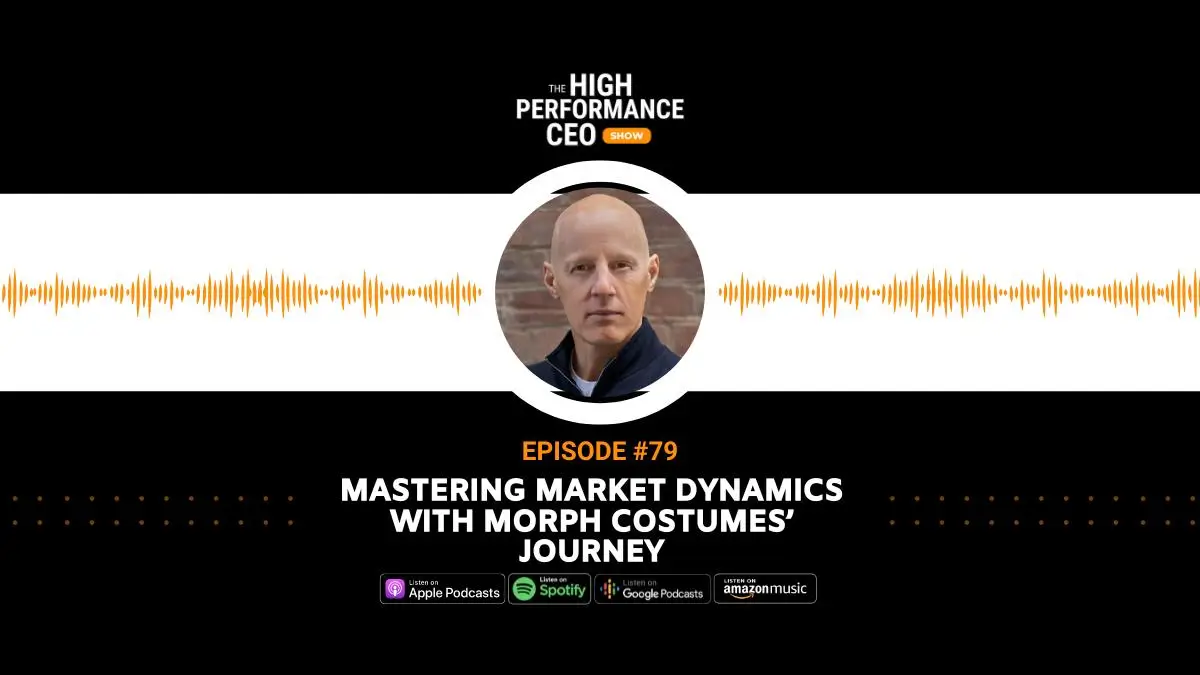
Episode Summary:
Learn from the co-founder of Morph Costumes how a simple idea can transform into a thriving empire. This episode reveals the significance of market responsiveness, the art of pivoting, and the strategic advantage of diversification in driving business success. Fraser Smeaton’s insights are a roadmap for CEOs cultivating an adaptable, forward-thinking company culture.
About Fraser Smeaton:
- Serial Entrepreneur: Fraser Smeaton's entrepreneurial spirit drives Morph Costumes's success. He's great at turning cool ideas into profitable ventures.
- Expertise in Market Adaptation: His skill in identifying and adapting with market trends led to Morph Costumes successfully shifting and expanding their product range, making waves in the costume industry.
- Pioneer in Leveraging Technology: Smeaton's forward-looking use of AI and data analytics in product development and market analysis shows his innovative strategy to stay ahead in a competitive business scene.
Key Takeaways:
- Get Creative and Adapt: Be flexible and willing to adjust your business model or product line based on market feedback and trends.
- Tap into Data Power: Make smart decisions and streamline your business operations using technology and data analytics for top-notch performance.
- Build Awesome Teams: Recruit and develop a team that can tackle tough challenges and thrive in fast-paced settings.
- Stay Ahead and Roll with the Punches: Equip your organization to swiftly adjust to market shifts and operational hurdles to stay competitive.
- AI for Growth Boost: Embrace artificial intelligence to innovate and streamline your product development and marketing strategies.
Why It's Important for CEOs Like You
CEOs and business leaders get a great story about transformation, adaptability, and success in the competitive world of entrepreneurship. With his deep knowledge of market adaptation and cutting-edge technology, Smeaton shows that innovation and responsiveness to market changes are key.
This episode shows how Morph Costumes grew from a simple idea to a global business and shares important lessons on having a flexible business model, using data analytics strategically, and building a problem-solving team culture.
For CEOs aiming for growth and market leadership, this chat gives practical insights and strategies focused on agility and foresight in today's business world.
What CEOs Can Start Doing
- Adapt to Market Changes: Stay flexible and be ready to pivot your business strategy based on market feedback.
- Use Data Wisely: Implement technology and data analytics to enhance decision-making and business efficiency.
- Engineer a Strong Team: Build a team that excels in problem-solving and can adapt to fast changes.
- Innovate with AI: Incorporate artificial intelligence in product development and marketing to streamline operations and foster growth.
Conclusion
Fraser Smeaton's journey with Morph Costumes showcases innovation, adaptability, and strategic foresight in today’s tough business world.
By pointing out the importance of adapting to market changes, utilizing data analytics and AI, and building a dynamic team, this story offers great insights for CEOs and business leaders aiming to boost their companies.
These practical strategies show the way to transforming an idea into a global powerhouse, emphasizing the significance of tech and teamwork in achieving lasting growth and competitiveness.
Smeaton's story illustrates the effectiveness of pivoting smartly and the vital role of an agile business approach in chasing entrepreneurial success.
Chapters:
- Introduction to Fraser Smeaton and Morph Costumes (00:00.111 - 00:26.35) Discussion about moving beyond the company's initial spandex suit product to a broad range of costumes.
- The Genesis of the Business Idea (01:35.982 - 03:53.839) Fraser shares the business's origin story, highlighting the accidental discovery of the market demand for spandex suits.
- From Simple Idea to Successful Business (03:53.839 - 07:21.656) Details on the early challenges of starting the business, including product sourcing, order fulfillment, and achieving rapid growth.
- The Business of Costumes Beyond Halloween (07:21.656 - 09:32.792) Discussion on the seasonal aspects of the costume business and how Morph Costumes capitalizes on various holidays and events year-round.
- Scaling the Business and Navigating Growth (09:32.792 - 14:23.832) Insights into the challenges of scaling the business, dealing with logistical issues, and the importance of a strong team.
- The Role of AI and Future Plans (25:07.791 - 34:51.032) Fraser talks about leveraging AI for product development and outlines future growth strategies for Morph Costumes.
Read the full transcript here
-
Transcript
Fraser Smeaton (00:00.111)
The key part of the business, the key part of the story is we don't want to just be known for spandex suits, that's what got us into the industry and we're very proud of that. But that's about 6 % of our business now but everyone thinks that's the entire business because that's the famous bit.
Sebastian Schieke (00:12.334)
Okay, good, awesome. Now we start. Dave, now we start. Hey, Fraser Smetan, welcome to the High Performance CEO Show.
Fraser Smeaton (00:23.983)
Thank you for having me here. It's great to be on.
Sebastian Schieke (00:26.35)
Today we talk about, it could be a funny subject, fancy costumes. You run a very successful company.
Fraser Smeaton (00:33.711)
Hi.
Yes, we've been selling costumes now since 2009. We started with spandex suits, but now we have a range of over a thousand different costumes, everything from witches, zombies, skeletons, hippies, anything you can think of. We've either got it or we're developing it.
Sebastian Schieke (00:39.246)
More of costumes.
Sebastian Schieke (00:59.886)
amazing and it seems to be a very successful business.
Fraser Smeaton (01:06.575)
Yes, it has been.
Yes, it's been a very successful business. We've had our ups and downs. We had a great start at the beginning with the Morphsuit. It became the world's most popular costume a couple of years after we launched it. Then we had some difficulties when we learned some lessons about how to deal with fast growth and how to pivot to where we got to. And then we've gone through a second stage of really fast growth that was then interrupted by the pandemic. So it has been an interesting journey.
Sebastian Schieke (01:35.982)
Interesting story. So let's start in the beginning. How did you develop this idea to create a company selling costumes? Was this a typical being in a pub with some friends and nothing too weird for the next fancy dress party? How did you get into this business?
Fraser Smeaton (01:56.751)
It wasn't quite being in a pub with some friends, but it wasn't far away. Myself and my two other founders, one of whom is my brother and the other is a old friend from university. We had been dabbling in some side hustles in the past and looking for business ideas and they hadn't been successful. But at the same time, with a group of friends, we had been on a boys trip to Dublin and it was a fancy dress trip with some sports involved, including a ridiculous hundred meters race. And one friend had bought a spandex suit.
to try and streamline himself for this 100 meters race. And in order to economize, when we went out for some drinks afterwards, he kept wearing the suit. And 200 people must have asked him where it was, where he got it from. Hundreds of people took his photo and we'd worn fancy dress costumes before, but we'd never seen a reaction anything like this. So we thought, wow, that's amazing. And then we wore it to a couple more events and the reaction was always the same. So that's when it dawned on us. We should give up working on our other side hustle.
Sebastian Schieke (02:40.654)
you
Sebastian Schieke (02:55.086)
Yeah. That's what you want. Business idea that completely goes through the roof without you doing anything. Just going to a pub and dressing up. So for everyone who's not, what is the spandex suit for everyone who's not...
Fraser Smeaton (02:55.151)
we should try and sell.
Fraser Smeaton (03:07.983)
I'm sorry. A morph suit, which is an all in one spandex or lycra stretchy material suit of originally one color would cover you from head to toe. But because the material is stretched across your face, you can still see out of it, but no one can see you.
Sebastian Schieke (03:24.014)
Yeah.
Fraser Smeaton (03:26.319)
ability while still being able to see it.
people could be.
also being in the center of attention.
Fraser Smeaton (03:39.215)
get that business off.
Sebastian Schieke (03:41.87)
Awesome. So this is quite a simple idea, yeah, but it's not so simple to make this a reality and turn this into business. So where do we start?
Fraser Smeaton (03:53.839)
So we started, and this is links back to the other side hustles we tried, because we'd attempted other ideas in the past, we knew how to do some of the things. We knew how to get a website built cheaply, but we didn't know how to source products. So we had to go into Google and work that out. And we found Alibaba, which was less well known in those days. And that allowed us to find some factories. And we put out a pitch document, and three came back to us. It quickly became apparent that one only spoke Chinese.
translation engine so we weren't going to be able to communicate with them and the other one was middlemanning for the same original factory so we were down to one so that's where we could start and we negotiated with them for a first order of 200 suits in across six colors we didn't have a warehouse so these were sent to my room in a in a young professionals flat in London I had probably underestimated how much space 200 more suits took up.
Sebastian Schieke (04:30.478)
one.
Sebastian Schieke (04:41.454)
Mm -hmm.
Sebastian Schieke (04:49.262)
I'm sorry.
Fraser Smeaton (04:50.095)
I think it was about at least half the room, so there wasn't a lot of room for sleeping. We each put in a thousand pounds of our savings at that point, and we spent two thousand on the initial order and we had a thousand left over for a website. And it was a pretty poor website, but I think that almost helped prove the idea. And it links back to I think you should always fast, you should always test your ideas cheaply and quickly.
because you never know, you can do all the research you want to do, you can gather as much evidence for the hypothesis as you want to do, but until the rubber hits the road or the product hits the consumer, you never know for sure how successful it's going to be. And because we started it cheaply and quickly and actually the website wasn't great, it was further proof that the idea was really strong because people had to battle through this terrible website in order to purchase the products.
Sebastian Schieke (05:21.262)
Yeah.
Sebastian Schieke (05:39.512)
They really wanted it, so they took all this burden and accepted a shitty website still to get the suits.
Fraser Smeaton (05:48.335)
Absolutely a shitty website with terrible delivery times because we were literally taking them to the post office ourselves in our lunch breaks from our from our corporate jobs and writing the envelopes by hand. But they really wanted it. As you said, those first 200 sold out in less than a week. I had three or four people who somehow had found my address on the internet and knocked on the doors to buy them. And they were just all the signals that we knew we were on to a big success.
Sebastian Schieke (05:51.946)
No.
Sebastian Schieke (06:15.448)
Oh, wow. That's amazing. I mean, how often we... And I also tried many things in the past, but something like this is really what you dream of. Something, boom, you have a minimum viable product and it goes through the roof. And then you can build on that and you can really optimize the process and get a proper website, everything, but you do it on a success path, and not...
like many others struggling and trying to make ends meet while they develop the product or service.
Fraser Smeaton (06:50.383)
Yes, exactly. We have seen both sides of that. Our other ideas weren't successful, so you're always working harder to push what I would describe as push water uphill. But when you've got an idea that's as powerful as that, doors just open for you because everyone wants to know about it. Everyone wants to hear about it. Buyers from stores want to have meetings with you. Factories want to know you because they know they're going to do big orders. And as you say, you can then refine everything from a position of power.
Sebastian Schieke (07:03.672)
Hmm.
Yeah.
Sebastian Schieke (07:21.656)
But is this not a seasonal business? The costume market?
Fraser Smeaton (07:26.575)
The costume market is definitely seasonal and Halloween is our biggest season, but it's probably less seasonal than people and myself included before I was in the industry would expect. So our biggest day at Halloween will be around 15 times our smallest day, but there are lots of other seasons, not quite as big as Halloween, but still make a big difference to us. So Christmas, lots of Christmas costumes, whether it's Nativity or Santa Claus, et cetera, gets sold. You then have European Carnival. As a man in Germany, you'll know about that. So across...
Sebastian Schieke (07:32.888)
you
Sebastian Schieke (07:39.896)
Mm -hmm.
Fraser Smeaton (07:56.143)
Italy, Spain, Germany, the Netherlands, we have a great season around Lent. I always joke that in Britain we get pancake day, whereas you get a three day costume party with beers added on top. I think we get the wrong end of the stick on that. Then in the UK, you've got book day, which is when all the kids go to school dressed as a character from their favorite book. So that gives us an extra one. Easter Bunny, St. Patrick's Day.
Sebastian Schieke (08:05.592)
Thank you.
Sebastian Schieke (08:09.464)
But.
Fraser Smeaton (08:20.335)
And then we go into sort of just summer and people having barbecues, they'll dress as pirates, they've got hippies for festivals, et cetera. So there is plenty of year round demand. And that's what our eyes were open to when we first went to a trade show in the US a year into our business, just with the sort of British expectation of how Halloween was 15 years ago, which wasn't that big. And we get there and we find these massive businesses. There are two or three families in the US that are billionaires from selling costumes.
So it was a really nice sweet spot of you've got this really large industry, but it didn't have the sophistication you might find if you went into beauty or toys, et cetera. So there was plenty of space to grow, but there weren't huge barriers to entry.
Sebastian Schieke (08:51.96)
Yeah.
Sebastian Schieke (09:06.04)
And there's a lot of room for error, I imagine. It's something you just try out and as you said, it's not so sophisticated, this business.
Fraser Smeaton (09:16.719)
Yes, exactly. You can try lots of things and there is space for error both in your costume designs, as long as you test small numbers of them, and also in working out your processes and what sells and what doesn't. So it was a nice space to sort of gain experience in running our own businesses.
Sebastian Schieke (09:18.186)
Um. Um. Um.
Sebastian Schieke (09:32.792)
Yeah. So you started with friends and then to Prata, you said. And now you have a large organization. How big is Morph Costumes, may I ask?
Fraser Smeaton (09:45.551)
So now we have 40 people in the UK and we have another 10 people based internationally.
Sebastian Schieke (09:48.6)
Okay, great. But starting a business with family and friends, I mean, you have a relationship to them. You have, of course, family relationship, but also friendly relationships. And then getting into business is a completely different game. You have different topics and you also have different challenges. So how did it work for you? How do you maintain your friendship and your family relationship?
while doing business at the same time.
Fraser Smeaton (10:19.823)
This is something I've thought a lot about and it goes back to the beginning when I don't think my parents were particularly impressed when they heard we were going to business with my brother because you only hear about the horror stories of families falling out around business. But actually one of our greatest achievements through this 15 years is the fact that we are better friends now across the three of us than we ever were beforehand. And we've managed to do that despite the stresses and strains, successes and failures of a...
fast growing businesses. And I think there are lots of positives of doing a business with family or friends. If you get it right, you go on a great journey and you share lots of great experiences with people you really like, but it is hard to get it right. And I guess my thoughts on it are three is better than two because looking at other businesses, it reduces the pressure or the intensity of that relationship. And it gives you a release valve.
Sebastian Schieke (10:55.16)
Hmm. Hmm.
Fraser Smeaton (11:16.847)
when things do get intense as they inevitably will. So if you're having a discussion on some issue with someone else or they're annoying you or whatever, you can go to the other founder, someone who understands the pressures, understands the stresses, and they can just give you that different perspective. You can have a good moan about the other person and they can say, no, you know they're a good guy, it's all all right. Whereas I think when you can be, when it's just two, no one else understands and it gets tough, yeah.
Sebastian Schieke (11:25.336)
Yeah. Yeah, it's always focused on each other and there's no exit. There's no...
way to release pressure and tension, get a different opinion. You know, often it's, we are so caught up in our own worlds and our own belief system and often it's just a different perspective we need to move the needle.
Fraser Smeaton (12:00.591)
That's exactly it. That's exactly it. So we didn't plan that, but I'm grateful we are three, not two. Then we have these sort of principles that we roll by. Everyone needs to pull for the business and not for themselves. So you're always pushing the business forward and if that happens, then you look after yourselves. Everyone succeeds or fails together. If we look back over these 15 years, we all have big wins that have really moved the business forward and we all have disastrous mistakes.
Sebastian Schieke (12:24.184)
Yeah.
Fraser Smeaton (12:29.615)
But never after any of those, either way, has anyone come back and said, I deserve to get paid more this year, or I deserve a greater shareholding, or anyone has tried to pay someone less because of that. And that way, you don't waste your time or your emotional energy or your relationship worrying about that kind of stuff. We're in this together, and we're either going to make it work together, or we're all going to fail together.
Sebastian Schieke (12:51.576)
Yeah, it's an equal playing field, and it's very important to... Yeah, as you said, not that someone takes the advantages and the benefits of a success and someone gets blamed for a mistake. You're all in together, and so you should celebrate the wins and also talk about failures together. But I mean...
Fraser Smeaton (13:18.639)
is.
Sebastian Schieke (13:19.48)
As you said, it was a fast -growing success. I mean, you developed an amazing organization now, but you obviously also had growing pains, I guess. I mean, putting a strategy, a structure in place, you need leadership teams, you need to develop your people, you need to develop a culture. I mean, there are so many aspects of entrepreneurship. What did you find the most difficult one in terms of...
Cronus organization.
Fraser Smeaton (13:50.927)
I mean, we have experienced both fast growth and fast decline. Um, and I can tell you that fast growth is one of the best feelings I've ever experienced. Um, it is so exciting, but fast decline is one of the worst feelings I've also experienced. Um, and on the way up, I remember several occasions, um, we launched in the May and then we got a sort of secondary stock in October. And I remember we did 5 ,000 pounds one evening and I was just blown away by that.
And then about a year later, we launched in the U S and it was another day in the run up to Halloween. And we were watching our sales run neck and neck with the, with the time on the 24 hour clock. So it was like 10 PM and we'd done $22 ,000. And we were like, this is unbelievable. We just couldn't believe it. I mean, they were huge numbers and we were selling spandex suits and that was so positive. Um, but yes, then when it was on the way down, it's really, really hard. And you have to work through that, but we'll focus on the growth bits and the pressure.
Sebastian Schieke (14:23.832)
Yeah.
Fraser Smeaton (14:48.591)
that puts on you very positive, good feeling. And as you said, we're doing it for position of strength, but fast growth exposes your weaknesses, many that you don't even know about. And you have to go back and fix them. And I remember in one of those early years, we were working with a warehouse out in Essex and you just assume they have limit. They have limitless capacity or DPD in this case have limitless capacity. But of course it's a local franchisee who's running that. And we were filling their van beyond capacity. So they basically ran out of vans.
Sebastian Schieke (15:08.152)
The crazy costume guys again.
Fraser Smeaton (15:17.647)
And you just, you don't think that that is a thing that can happen. Yeah. Yeah. Yeah. Correct. Exactly. It's October. So we're going to, we're going to need to get a bigger truck. Um, so, and then suddenly that's right at your most intense period when everyone needs their costume by Halloween and you're falling behind on your delivery schedule because of something you didn't even know existed. Um, and you thought was limitless and we've seen that as well. We ran out of space in our three PL a couple of years ago as we grew coming out.
Sebastian Schieke (15:33.72)
Yeah.
Fraser Smeaton (15:45.199)
pandemic, again, we thought this was a limitless space in the warehouse, because it's a giant warehouse. But we ended up having to store stuff in a really expensive secondary warehouse while you were doing that. There's other things like the complexity increases as you roll out internationally, you start tripping tax thresholds in different countries. And suddenly you're getting letters from the tax authorities in Poland and the Czech Republic, and you've got to have systems in place to make sure you handle that. And this is all done under intense pressure.
Sebastian Schieke (15:52.458)
Yeah.
Sebastian Schieke (16:07.064)
Yes.
Fraser Smeaton (16:14.703)
because you are growing fast. So you have to make the decisions fast. And obviously decisions that are made faster are often not your best decisions. But what we've kind of learned, and it's a bit of a cliche, but like a lot of cliches, there's real truth in the middle of it. If you can hire great people and put your effort into that, and these are people with great problem solving skills, it does take a particular skill set in a fast growing business because you don't have all the information. So you have to deal with ambiguity and people who can make
Sebastian Schieke (16:22.872)
Hmm.
Fraser Smeaton (16:43.567)
decisions and solve problems with incomplete data sets, put them in the right roles and give them clarity on the vision. Then you get support in solving those problems fast as they come up. But you also have to accept you're going to make mistakes and you just have to deal with them as quickly as possible. Make sure you fix the critical ones. Don't worry about the other ones. And then as soon as you've got time, you go back and loop back round and fix the other businesses. And if you're continually fixing things and continually improving your processes,
It's not my idea, but it's incremental gains that David Brailsford talks about and you're continually improving every little bit before you know it. You are miles further forward than you thought you were. And for example, in our, in our growth phases, the first one where we went from 1 million in our first year to 11 and a half million in our third year. And then we had the tough times. And after another four years, we'd reduced it back down to 6 million. But then going forward from that.
Sebastian Schieke (17:35.992)
I don't know.
Fraser Smeaton (17:42.735)
We went in the last four years or so, we went from 14 million to 20 to 33 to 42. And so we've gone through it all again and it's put different pressures on the business. But we've taken the lessons from the first growth period and the mistakes we made there. And we got the right people in place this time. And we've gone through it a lot more smoothly than we did the first time.
Sebastian Schieke (18:06.648)
Yeah, but this is all about, I mean, making mistakes, learning from the mistakes and then you do another round of growth and you implement what you learn. And I think personally, I think also having the right culture is important, allowing people to make mistakes that they're not afraid because I mean, only when you make mistakes, you learn. It's nothing, most of what we do nowadays in our business, we haven't done before.
So we have to try out. This is the biggest challenge I see with our education system because kids are taught not to make mistake in school. And I often ask myself, how will they be able to survive in the world outside, you know, if they're not able to make mistakes, if they're afraid to failure?
Fraser Smeaton (18:57.135)
That's a really good point. I have three children, eight, six and four, and I spend a lot of my time when I'm not working, helping them with their homework, et cetera. And I'm going to take that on board because they need to be able to make mistakes. And I'm perhaps one of those people who is maybe a bit hard on them when they are making mistakes with their maths and things like that. Whereas actually they do need to be able to make those mistakes and learn from them. And I think this goes back to something you said earlier about the beginning and about how we focus on...
Sebastian Schieke (18:57.368)
Yeah.
Sebastian Schieke (19:06.072)
Yeah.
Fraser Smeaton (19:25.391)
testing things quickly and testing things cheaply and therefore your mistakes are not too destructive if they go wrong. So we will always be supportive of people in this business trying something new as long as they followed that process, even if it doesn't work. I would rather have someone who worked here and promote someone who worked here who is making lots of small thoughtful mistakes than someone who just sits there and never tries anything else.
Sebastian Schieke (19:26.968)
Hmm.
Fraser Smeaton (19:51.439)
But that's the crucial bit. Have they gone through that process? Have they looked at the evidence that's in front of them, developed a hypothesis, found more information to try and support that hypothesis, then built a plan that allows them to test it quickly and cheaply, but also that they understand how they would scale it if it actually works. And if they do that, they can have 10 wrong ideas.
But one good idea will far outweigh those 10 wrong ideas. And that's how you move forward. That's really at the core of what we try and do.
Sebastian Schieke (20:20.568)
Exactly.
It's like being an investor. I mean, business angels are invested in startups and yeah, I mean, you need one which is really going through the roof, you know, and then this one could pay for the mistakes, the other one.
Fraser Smeaton (20:39.663)
Yep. And we look at that all the time. And sometimes I get excited. We see we have a new style of lead image, say on Amazon, and it looks like it's converting really, really well and driving more click through. And we get excited and we think that's going to be the future. But then you get more data. It's not, it's not actually improving things. And then, but the good thing is we'll have a pipeline of other tests behind it. And if we've got those other tests coming, when you get that one, it can move the whole business forward 10%. And when you're a big business, that makes a big difference.
Sebastian Schieke (21:08.856)
So I imagine the majority of your work or your people focus on marketing and sales, internet marketing, ads, and so on. Yeah.
Fraser Smeaton (21:19.183)
Yes, absolutely. So there's a balance. We have a lot of people focusing on marketing, sales, direct to consumer e -commerce, which is where our strength really lies. Um, but also we are quite a complicated business on the SKUs and operations side. Um, costumes is a long tail game. We have 1 ,100 different designs, which come in four different sizes and we sell them across eight or nine different territories. So you can do the multiplication on the SKUs. Um, so.
Sebastian Schieke (21:47.384)
Ha ha.
Fraser Smeaton (21:49.135)
actually probably equally, it'll be three thirds marketing and the sales, the consumers facing side of what we're doing. The operations side, making sure the products are of the right quality and in the right place. And then actually the finance team making sure that we are doing all that profitably, because you're talking about small amounts of money on each costume that's scaled very quickly. So if you're, if you've got your costs wrong in one place,
Sebastian Schieke (21:56.184)
Yeah.
Sebastian Schieke (22:12.792)
Yes.
Fraser Smeaton (22:17.199)
that multiplies up very quickly and you can find out you're making a lot less money than you thought you were actually going to make. So having those three areas working in conjunction is the key to what we do.
Sebastian Schieke (22:30.872)
Did you have to take on investment capital?
Fraser Smeaton (22:34.767)
Yes, we did. We have been working with the Business Growth Fund. They're a UK firm who have investments in over 200 small and medium sized businesses. They have a minority stake and they claim, they do more than claim, they live up to being long term patient capital because they have been very patient with us. They've been in for 12 years and they have been through the ups and downs of this business. And because of that patience, they're now, they invested when we're 11 million and we're now a
as I said 42 million so we'll give them a good return on their money and reward them for that patience so they've been great.
Sebastian Schieke (23:12.088)
So it's a really serious business you're running, but I could imagine there's also serious side of costumes. Yeah. It's not only fancy dressing up, having fun. I think there's also psychological aspect of putting on costumes.
Fraser Smeaton (23:31.535)
Oh, definitely. And you can see that when obviously a lot of the world has been suffering from declining disposable incomes, but actually costume sales remain pretty resilient. People want to have fun when times are tough. And you can actually see that from other industries that you wouldn't think are adjacent, but things like the confectionery industry, it gives you an affordable treat or maybe less, more harmfully the alcohol industry.
But people reward themselves with those little treats in the tough times and costumes are absolutely part of that. So our sales stay strong in these tough times because it's a reasonably priced way to have some fun and to make some special memories. Whether that's with your kids or with your friends or for a birthday party or whatever it happens to be, it takes that box so stays pretty strong.
Sebastian Schieke (24:23.)
Amazing. So how do you see this business developing? I mean, COVID is over, or at least it's, yeah, it turned into something which is permanently there, but not so threatening anymore. But we have other crisis, war in Europe and so on. So I guess there's still also high demand for people escaping reality and putting on a costume.
There's a lot of development in technical space, a lot of AI in marketing and sales. So how do you prepare your company for the future? What are the plans?
Fraser Smeaton (25:07.791)
So in terms of the big shocks that, you know, the war in Europe or other things like that, I, I, we just focus on having a resilient.
Sebastian Schieke (25:21.752)
Yeah.
Fraser Smeaton (25:47.361)
Yes, that was tough. But from now, we're looking forward. We have three prongs to our growth. We've got more products, more channels, and more geographies. And it's on the product side where AI is really helping us at the moment. And people describe it as fuel to the fire. And that's definitely how we use it. So we still have a lot of costumes that we need to add to our range. Despite having 1 ,100, this is a really long -tail game with lots of different themes. And I'm always Marvel.
how many we have, but how many we're still missing. The story I tell to people is that last year we didn't have any women's witch costumes. We were still a big company, but somehow we didn't have any women's witch. We've now added four different women's witch designs. But there's lots of examples like that. So we need to keep using the data that we have to focus us on where there are gaps to the range and add to our range. And that's where AI plays a big part in that. It helps us find...
and structure the data so that we can see the insights that we need to have. It helps our designers come up with new concepts. So it helps them a new jumping off point, we would describe it. So you might get an idea for a pirate, but there are lots of ways you can execute a pirate. And sometimes the creative process just needs a nudge. So that's a different color scheme that really works together with that. Oh, I hadn't thought of that. And because AI can create 50 different jumping off points that you can scram through and go rubbish, rubbish, rubbish. Ooh, I like that one.
Sebastian Schieke (26:52.472)
Yes.
Sebastian Schieke (27:08.856)
So, designing our pilot, not executing the executed way.
Fraser Smeaton (27:09.871)
That really helps.
Yes, yeah, sorry, designing an execution of a pirate. No, we're not. We're not making anyone walk the plank. Yeah. And then we can, we can speed the prototyping and it can support our content creation. You know, we can use it for editing photos. We can use it for improving the videos and all of that helps us get.
We have actually within our group, we have within our team, we have a teams group, which has 29 of our 50. I'll just check it this morning. I had 29 of our 50 people on it where everyone is finding new ideas for AI that they think could be applicable to the business and sharing it out. So we have that flow of ideas because there's so much change that's out there. So yeah, it's been really powerful so far. And then as I say, more channels, we're very strong on Amazon, but we also have a brick and mortar wholesale business. So we sell to Walmart.
Sebastian Schieke (27:50.648)
Yes.
Sebastian Schieke (27:58.744)
input.
Fraser Smeaton (28:02.639)
Target and other big American retailers and we think there's lots of potential for growth with those partners. And then we want to scale across secondary marketplaces. So yes, Amazon is the dominant player worldwide, but there are hundreds of either secondary or local leaders like Ball .com in the Netherlands or Allegro in Poland where we don't list our products yet. And we have assets in terms of our
products, we have the imagery, we have the product designs, we have the content, we know what the keywords are, these are all assets in the business. So using those assets more effectively, or getting more juice out of them by listing them in other places where consumers are, is a big priority for us. And then finally, just going to more geographies. So speed to consumer is important. Most people have a party coming up and they go, ah!
Sebastian Schieke (28:42.872)
Oh.
Fraser Smeaton (28:55.663)
So the quicker you can get the costume to the consumer, the more competitive advantage you have. So we launched into Canada last year with local stock instead of shipping from the US. And that business has grown multiple hundred percents. We're going to put local stock in Mexico, and we expect the same to happen there. And we're continuing to do that as time and cash allows. And that, again, is building another underlying asset that we will have this international network.
distribution where we can plug more and more products into it so it can scale much more quickly because the next 10 costumes we design can then go into more marketplaces and more geographies and therefore deliver more revenue than they could if we just design 10 products and only sold in the UK on one platform.
Sebastian Schieke (29:39.864)
you
It just mentioned speed to consumer. I guess the pressure is increasing from the consumer side to be delivered fast and without any major delays. I mean, last week my toothbrush broke. At five to midnight, I ordered one on Amazon, a new one. Next day at 11 on a Saturday, they rang the bell and delivered it. I said, this is crazy.
But it raises expectation. Whenever I order something from somewhere, if this takes two or three days, I say, hey, what's wrong? Did you forget me? Well, in the past, a week or two was just standard when you order something online. You never expected it to happen in two days and not even the next day. Or you have same day deliveries in the big cities. So...
Fraser Smeaton (30:24.335)
Yeah.
Sebastian Schieke (30:43.256)
You have to have stock everywhere.
Fraser Smeaton (30:46.415)
Yes, exactly. And so that again, part of that finance team and that.
Fraser Smeaton (30:54.479)
huge number of products that we have. So we have just the right amount in the right places. So we do that half in the merchandising, but we also leverage Amazon's incredible logistics that you talked about. And it's obviously one of their main pieces of competitive advantage to be able to deliver to the consumer at that speed and at a reasonable cost. Now the other logistics providers are catching up on that, but Amazon's staying ahead. They particularly in the US, our biggest market.
Sebastian Schieke (30:59.)
Mm -hmm.
Sebastian Schieke (31:15.032)
Mm -hmm.
Fraser Smeaton (31:22.383)
They have changed expectations from, as you said, two weeks, a long time ago, but prime used to be two to three days to last year. They were getting more than 50 % of their prime orders, I believe, delivered next day in the U S and for seasonal business like us, that is actually phenomenally important because we have big, big days. Our biggest days of the year used to die off three days before Halloween. Now they keep going. We get an extra two big days.
And if you think of that for actually every little occasion, so everyone who's buying a costume for the weekend, they used to have to have made their decision by Wednesday or they went to a brick and mortar store because that's the only way they can get it. Now they can keep buying from us until Friday. So we're getting another like two days out of the week, which is like 20 % of the week. So in our category, which is impulse or not impulse, I would say urgent panic is, uh, the speed of delivery opens up much bigger markets.
Sebastian Schieke (32:16.792)
Yeah, just, I mean, who plans buying a costume weeks in advance? You know, there's something, come on, yeah, we'll find something and then you go to your cupboard and say, ah, it's all boring stuff, so what should I do?
Fraser Smeaton (32:24.865)
Well, you know, people are very different and we have the data to prove this. There is a small number of American and it's American women. You see American women Halloween searches start in late July. Yeah. And then it grows and because there's enough people, you can see the statistics of how it comes and then the men come in later. But there's some men start planning ahead in late August.
Sebastian Schieke (32:43.512)
Oh
Fraser Smeaton (32:52.975)
But the majority of men are in about the last three days. So yeah, the statistics don't lie.
Sebastian Schieke (32:55.672)
Yeah. Wow. Sounds like a fun, fun business you're in. I definitely know next time when I, when I need something, where to get a costume for my next fancy dress party. Before we wrap up, is there anything, any tips you would like to give starters, founders who said, Hey,
Fraser Smeaton (33:03.951)
Yeah. Yeah.
Fraser Smeaton (33:12.943)
That's correct.
Sebastian Schieke (33:23.544)
I'm looking for a cool idea or I have a cool idea and I want to bring it to the market. What is your biggest learning?
Fraser Smeaton (33:32.847)
My biggest learning is the one that got us going, which is to create the hypothesis, back it up with as much evidence you can, test it quickly and cheaply, and scale it if you can scale it. And then have high standards. We've kept businesses going, which were just about viable, and it's hard work. You keep pushing and you keep pushing and you just about get there. Whereas actually, go and stop.
Go and find that mega idea, the idea where it just goes crazy, where you can't keep up with the demand. And you'll find you'll be so grateful that you did that because it is so much easier than just keeping pushing a marginal idea. It's almost much easier when you have one that obviously doesn't work. And we've all had plenty of ideas that don't work. And you can tell there's no chance of keeping it going. The ones that are difficult are those ones in the middle that are just about viable, but you don't really want them. You want the really, really good ideas.
Sebastian Schieke (34:20.6)
Yeah.
Fraser Smeaton (34:31.279)
be my biggest tip. Keep testing till you find one.
Sebastian Schieke (34:34.744)
Awesome. Hey, very inspiring conversation. I learned a lot and I will definitely check out your store. And yeah, wish you lots of fun growing this even further.
Fraser Smeaton (34:48.047)
Thank you very much for having me on. It's been really fun talking to you.
Sebastian Schieke (34:51.032)
Thanks Fraser.
That was cool.
Check out our other channels:
Instagram: https://www.instagram.com/sebastian.schieke.official
YouTube: https://www.youtube.com/@thpcshow
LinkedIn: https://linkedin.com/in/sebastianschieke
Website: https://www.sebastianschieke.com


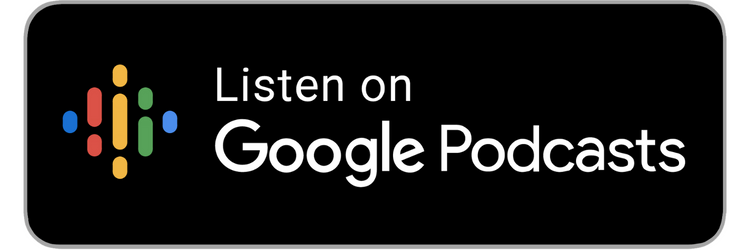

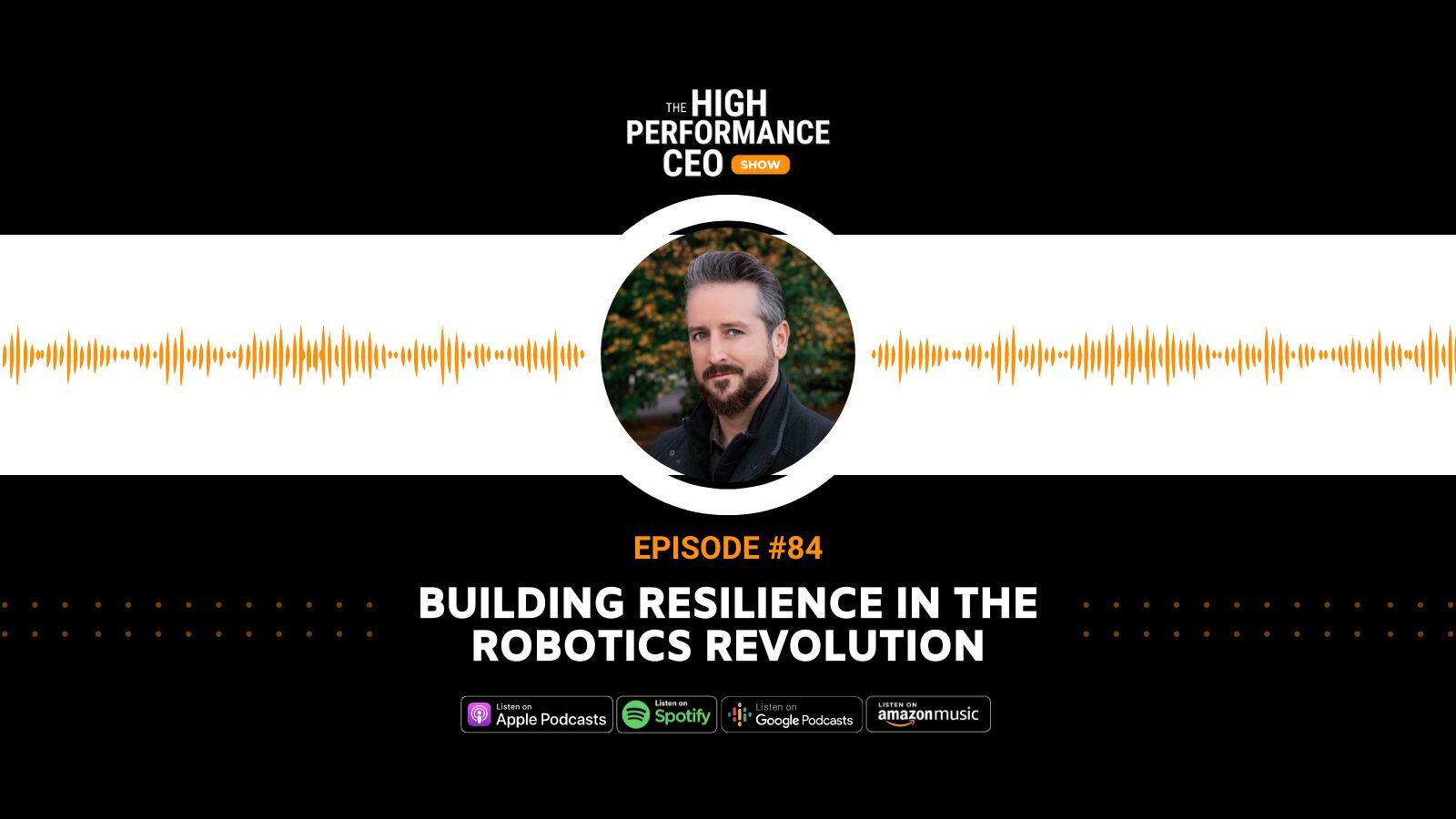
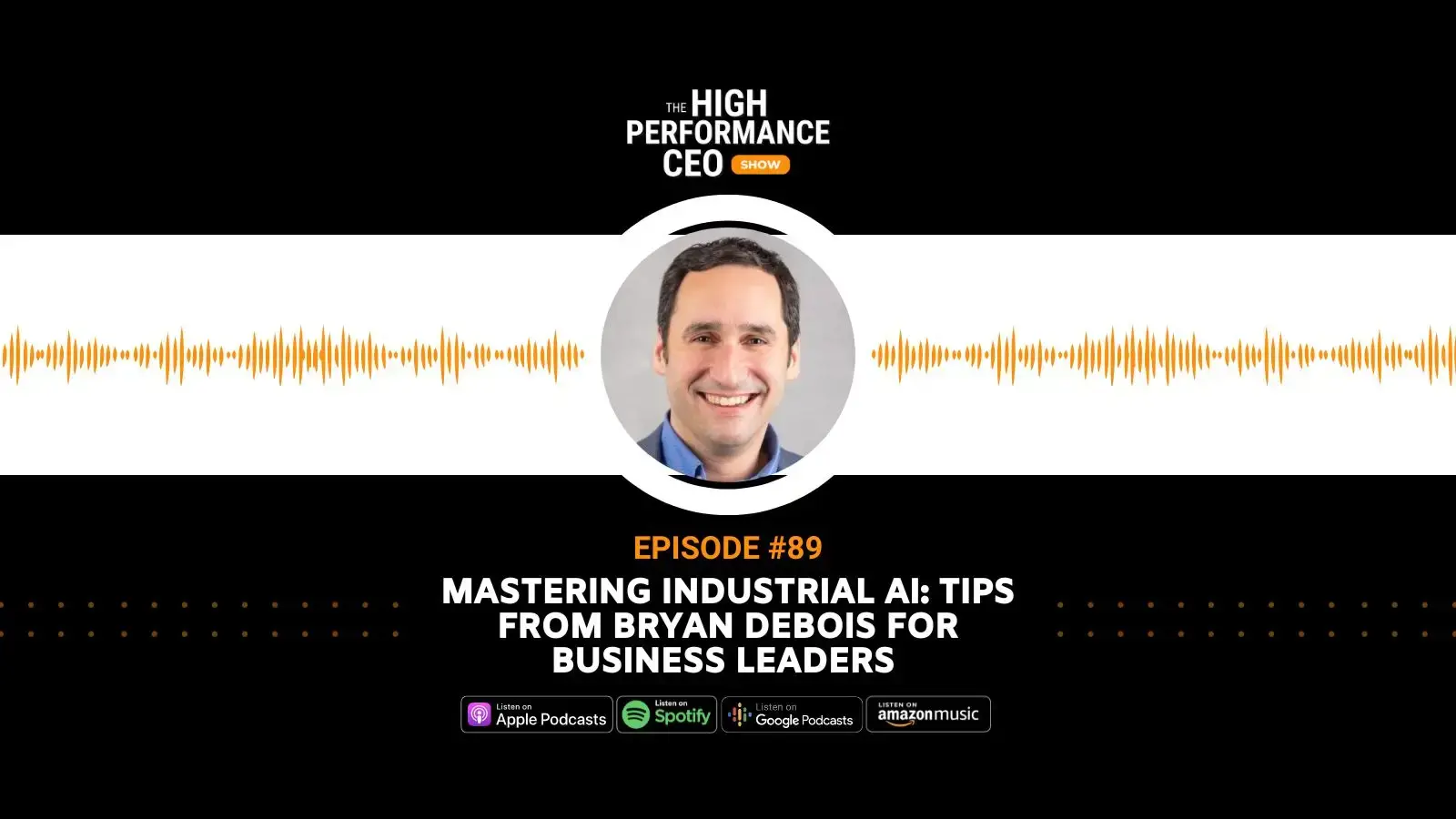
-1.jpeg)